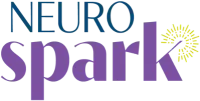When to Choose an AuDHD Assessment Instead of Autism-Only or ADHD-Only Testing

Table of Contents:
A client recently asked us a great question:
“I’m considering an autism assessment, but I read it’s common to have both autism and ADHD. If I only do the autism assessment, will I still get feedback about possibly having ADHD? Should I choose the AuDHD assessment instead?”
If you’ve been wondering the same thing, you’re not alone. Many of our clients are initially unsure which path makes the most sense: autism testing, ADHD testing, or an AuDHD assessment that covers both. The answer depends on your history, your goals, and how much overlap you see in yourself.
Autism vs ADHD Testing: What’s the Difference?
Autism assessment
An autism evaluation focuses on exploring autistic traits (social communication patterns, sensory sensitivities, routines, special interests, and developmental history). ADHD screening is included (and we’ll let you know if ADHD is a possibility that warrants further evaluation), but it’s not the central lens.
ADHD assessment
This evaluation primarily examines attention regulation, executive function skills (organization, planning, time management), and hyperactivity. Possible autism traits are not explored in depth.
AuDHD assessment
This is the most integrated option. Instead of running two separate processes, we bring both frameworks together from the start. That means we look not just at whether you meet criteria for autism and ADHD individually, but also at the intersections of autism and ADHD, like when focus struggles might come from ADHD distractibility, autistic monotropism (deep focus on one thing), or the way trauma interacts with both.
👉 For a quick breakdown, check out our AuDHD assessment guide.
Autism and ADHD Overlap: Why It Matters
Because autism and ADHD often overlap in real life, a single-focus assessment can sometimes miss part of the picture.
- An autism-only assessment may not fully capture executive function challenges tied to ADHD.
- An ADHD-only assessment might overlook autistic sensory experiences or communication patterns.
- An AuDHD assessment is the most comprehensive, holistic evaluation option that captures your full neurotype. It’s especially helpful if you’ve been masking for years or if trauma makes it hard to tease things apart.
When to Choose Each Type
Choose autism-only if…
- Your biggest question is whether you’re autistic.
- You resonate deeply with autistic traits like masking, sensory overwhelm, or social burnout.
- ADHD has never really been a concern for you or others in your life, or you already have an existing ADHD diagnosis that you are comfortable with.
Choose ADHD-only if…
- Your struggles center on focus, organization, procrastination, forgetfulness, or impulsivity.
- Autism traits (sensory, social, communication differences) don’t feel especially relevant to you.
- You’ve already explored autism and don’t strongly identify with it.
Choose AuDHD if…
- You see yourself in both descriptions.
- You’ve always wrestled with attention and executive function, and you relate to autistic experiences.
- Friends, family, or providers have mentioned both autism and ADHD as possibilities.
- You’re curious about autism, have an existing ADHD diagnosis, and would like a more comprehensive evaluation for both diagnoses.
- You don’t want to risk needing a second round of testing later.
What If I Choose the Wrong Assessment?
Here’s the good news: we don’t perform assessments in a vacuum. If you pursue an autism evaluation and ADHD traits are obvious, we’ll let you know. If you pursue ADHD testing and autism shines through, we’ll mention that too.
That said, an AuDHD assessment saves time and energy (and money!). It’s the most efficient option if you’re wondering whether both might apply, and if you would like to understand how the two diagnoses overlap uniquely for you.
Bottom Line: AuDHD Testing for Adults
If your main question is “Am I autistic?” then an autism assessment may be enough. If your question is “Could it be both?” then the AuDHD assessment is the clearest and most comprehensive path forward.
Either way, you deserve clarity and care, not a rushed, one-size-fits-all approach. That’s why our assessments are built for adults who’ve spent years masking, questioning, or piecing things together on their own.

Julie Landry, PsyD, ABPP
One Spark Can Light a Fire
Diagnosis can be the catalyst for significant momentum. It can represent a turning point for your life, where you can move forward equipped with new knowledge about yourself and a new framework to guide you in your journey.
A formal assessment provides an incredible opportunity to gain knowledge about who you are and how you see the world.



